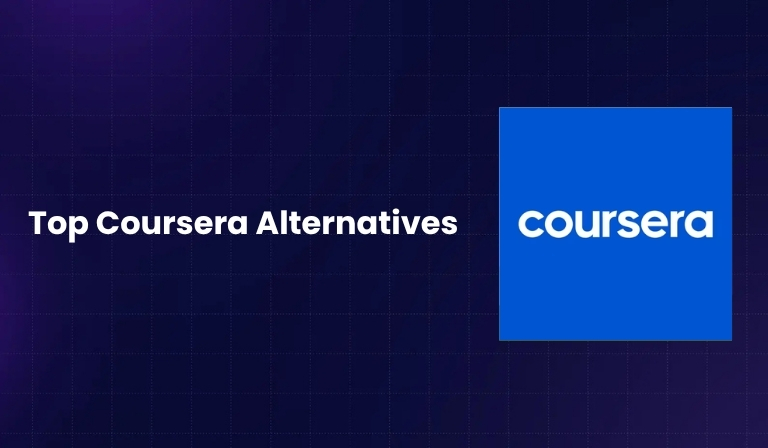Online learning has become more accessible than ever, thanks to platforms like Coursera. But while Coursera offers high-quality education from top universities, it’s not the only option. Whether you’re looking for free content, lower-cost certification, or niche-specific skills, there are many Coursera alternatives worth considering in 2025.
In this guide, we’ll explore the best 11 alternatives to Coursera—both free and paid—to help you find the one that suits your learning goals and budget.
What is Coursera?
Coursera is a popular online learning platform that collaborates with top universities and companies to offer courses, certificates, and degree programs. You can learn everything from computer science and business to psychology and arts.
Coursera Pros:
- Access to courses from top institutions like Stanford and Yale
- Professional certificates and degree programs
- Mobile-friendly and easy-to-use platform
- Interactive assignments and peer-reviewed assessments
Coursera Cons:
- Most certificates require payment
- Some full programs can be costly
- Not ideal for hands-on learning or creative subjects
Why Consider Coursera Alternatives?
There are several reasons why you might explore other learning platforms:
- Budget Constraints: Many alternatives offer free courses or affordable subscriptions.
- Niche Needs: Some platforms specialize in specific skills like coding or creative design.
- Learning Style: You might prefer video tutorials, community-driven learning, or project-based assignments.
- Certification Options: Some platforms offer free certificates or cheaper alternatives.
Top 11 Coursera Alternatives in 2025
Below are the best platforms to consider if you’re looking for different or more budget-friendly learning options.
1. EdX (Audit & Verified Track)
EdX offers courses from MIT, Harvard, and many other top universities. You can audit most courses for free or pay for a verified certificate.
Pros:
- Courses from prestigious institutions
- Free access to core materials
- Structured like real college classes
Cons:
- Certificates require payment
- Not all courses offer practical projects
Pricing:
- Free to audit
- ₹4,000–₹25,000 for verified certificates
2. Khan Academy
Khan Academy is a nonprofit offering a large library of free educational videos and exercises in subjects like math, science, economics, and more.
Pros:
- 100% free
- Great for K–12 and foundational learning
- Self-paced and easy to understand
Cons:
- Not focused on professional or advanced skills
- No certificates
Pricing:
- Completely free
3. Udemy
Udemy features thousands of paid courses on everything from coding to photography. Frequent sales make it one of the most affordable paid platforms.
Pros:
- Huge variety of topics
- Lifetime access to courses
- Regular discounts
Cons:
- Course quality can vary
- No standard structure across courses
Pricing:
- ₹499–₹3,000 per course (often discounted to ₹499–₹799)
4. LinkedIn Learning
Formerly Lynda.com, LinkedIn Learning offers professional courses in business, tech, and creative skills, with certificates linked to your LinkedIn profile.
Pros:
- Professionally produced content
- Recognized certificates
- Integration with LinkedIn profile
Cons:
- Subscription model only
- Not ideal for academic-level subjects
Pricing:
- ₹1,400/month (Free trial available)
5. Skillshare
Skillshare focuses on creative fields such as design, photography, illustration, and business, offering project-based learning.
Pros:
- Great for creators and entrepreneurs
- Community and class projects
- Easy to follow videos
Cons:
- Requires subscription
- No formal certifications
Pricing:
- ₹1,000/month (Free trial available)
6. Alison
Alison offers free courses across categories like IT, health, business, and language. Certification and diploma options are available for a fee.
Pros:
- Free learning content
- Recognized certificates
- Covers both academic and vocational skills
Cons:
- Advertisements in the free version
- Certificates cost extra
Pricing:
- Free courses
- Certificates from ₹1,200 onwards
7. MIT OpenCourseWare
This is a free and open publication of MIT course materials that covers almost every subject taught at the institute.
Pros:
- Top-tier academic content
- Completely free and accessible
- No signup required
Cons:
- No interactivity or certificate
- No instructor support
Pricing:
- Free
Also Read: Top 10 Course Creation Tools to Build and Sell Online Courses in 2025
8. DataCamp
Perfect for learners focused on data science, programming, and analytics. DataCamp combines lessons with real-time code practice.
Pros:
- Interactive coding interface
- Ideal for data science and Python/R
- Tracks your learning progress
Cons:
- Narrow focus (mostly tech/data)
- Subscription required
Pricing:
- ₹1,000–₹2,000/month
9. FreshLearn
FreshLearn is a newer platform designed for both creators and learners. It allows experts to build and sell their own courses.
Pros:
- Creator-friendly
- Interactive learning tools
- Clean user interface
Cons:
- Smaller course library
- Still growing user base
Pricing:
- Free and paid plans available
10. Pluralsight
Focused on technology and professional skills, Pluralsight is known for its skill assessments and in-depth learning paths.
Pros:
- Strong tech course catalog
- Great for IT professionals and developers
- Curated learning paths
Cons:
- Limited non-tech content
- Subscription only
Pricing:
- ₹2,500/month or discounted annual plans
11. Udacity
Udacity’s Nanodegree programs offer in-depth content created in partnership with companies like Google and IBM.
Pros:
- Mentorship and career support
- Industry-recognized Nanodegrees
- Real-world projects
Cons:
- Expensive compared to others
- Fixed start dates
Pricing:
- ₹15,000–₹25,000/month
How to Choose the Right Coursera Alternative
Here are some quick tips to help you decide:
- Set Your Goal: Are you looking for a job, a skill upgrade, or a hobby?
- Evaluate Learning Style: Do you prefer self-paced, video, or community learning?
- Budget Considerations: Check if you’re okay with monthly fees or prefer one-time payments.
- Certifications Needed: Some platforms offer free courses but charge for certificates.
Final Thoughts
Coursera is a great platform, but it’s not the only option. Whether you’re looking for a free learning experience, more niche content, or affordable certifications, these 11 alternatives offer something for everyone.
Try exploring a few of them—most have free trials or open courses. You might just find a better fit for your unique learning needs in 2025.
FAQs
1. Is there a 100% free alternative to Coursera?
Yes. Khan Academy, MIT OpenCourseWare, and Alison offer completely free courses.
2. Which Coursera alternative is best for tech learners?
DataCamp, Pluralsight, and Udacity are excellent choices for tech-focused learning.
3. Do these platforms offer certificates?
Most paid platforms and even some free ones like Alison offer certificates, but some may charge extra.
4. Can I switch platforms later?
Absolutely! Many learners use a mix of platforms depending on their goals and budget.

